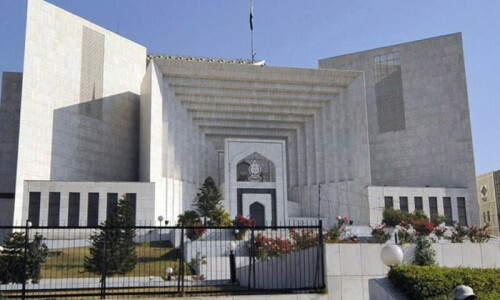THE circus otherwise known as the presidential elections in Egypt is making an anarchist of me. There isn’t a single candidate I find either qualified or deserving to lead revolutionary Egypt, and I don’t believe the elections will be free or fair — how can they be, under a military junta that has run Egypt since Feb 11, 2011?
Concerned with guaranteeing itself immunity for crimes against the people and protecting its legendary budget from civilian oversight when it hands over power after next month’s presidential elections, the junta has certainly been helped by the Islamists’ endless missteps.
According to which conspiracy you favour, those same Islamists — be they Muslim Brotherhood or ultra-conservative Salafis — are either in cahoots with the junta in an attempt to guarantee their own slice of power, or as hapless as the rest of us trying to end military rule.
From where I stand, it’s not just a slice but a desire to swallow the cake whole that has hamstrung the Islamists — who control 70 per cent of parliament — and highlighted how Mubarak and his predecessors gutted Egyptian politics.
Ever since the military coup in 1952 to end the monarchy and British occupation, the army has arrested just about every development. So it’s really not unsurprising that we’re left to ask, a little over a month before we’re supposed to choose Mubarak’s alternative: who is the best of the worst? For a few fevered weeks it was ‘who is the least scary?’ until the election commission disqualified 10 candidates, three of whom in particular elicited various fears.
One — the Muslim Brotherhood’s Khairat al-Shater — was disqualified for his money laundering and terrorism conviction in what was undoubtedly a politically motivated trial under Mubarak. Anticipating this, the Muslim Brotherhood also fielded Mohamed Morsi, the head of its Freedom and Justice party. Politics is dirty and the Muslim Brotherhood — and Egypt — is learning that there’s a big difference between being a movement that can wrap itself in the flag of Islam, and a party that has delivered on none of the concerns that its voters put it in parliament to fix: jobs, the economy and security. Shater was said to command the support of a little over three per cent of undecided voters.
A second disqualified candidate — the Salafist Hazem Abu Ismail — embodied the hypocrisy of Salafis in Egyptian politics. They believed the democratic process was a sin and wanted nothing to do with a revolution they now claim they want to defend, no doubt because it’s given them 25 per cent of parliamentary seats.
The writer is a commentator and lecturer on Arab issues—The Guardian, London












































Dear visitor, the comments section is undergoing an overhaul and will return soon.